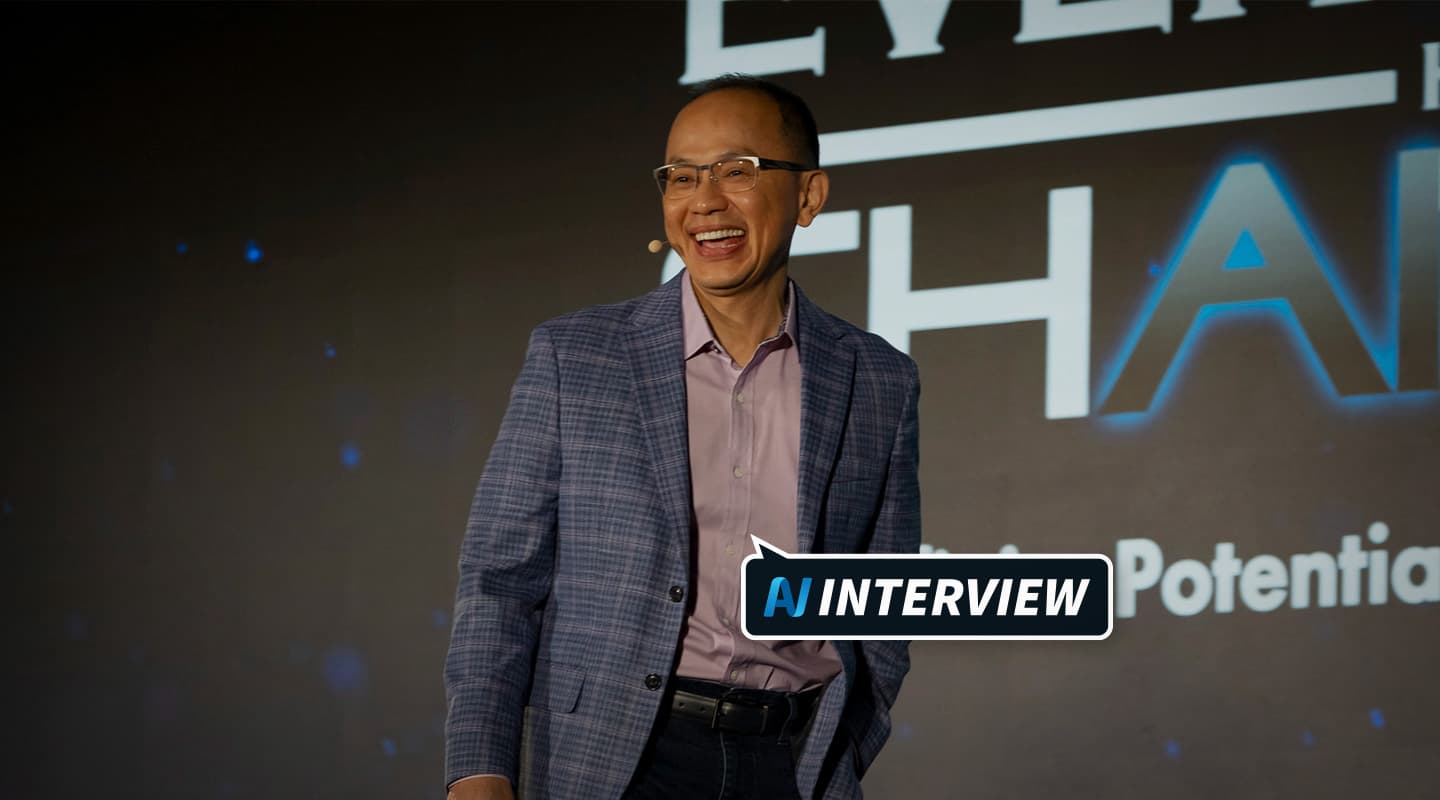
AV Interview: Joe Pham, QSC | Q-SYS
Chairman and CEO of QSC | Q-SYS, Joe Pham, thinks the AV industry has a role to play and an opportunity to prosper from the rise of AI.
Interview:/ Christopher Holder
Joe Pham’s InfoComm 2024 keynote was a high-energy clarion call to the AV industry — AI is coming; and its power and reach is growing exponentially. AV Editorial Director, Chris Holder, sat down with Joe during the show for a one-on-one follow-up conversation about AI in AV.
AV: There were a few things that popped out to me about your keynote. I was interested that from your perspective, one of the main gateways for commercial AV into AI is via the cameras we sell, install, or monitor… I just wondered whether you could colour that in some more?
Joe Pham: I think it’s a great point and one of the key reasons why I’m very excited about the potential of AI in the AV industry. As I discussed at the keynote, it’s really three things coming together: the compute, the data, and the neural networks. We are, as an industry, going to be using large neural networks developed by the tech giants. We’ll fine-tune, we’ll do our thing, but the foundation is developed in a different space. We’re not an industry that’s going to reinvent compute, right? And so, for most industries, including ours, it’s data that is going to be the enabler for leveraging technology, compute, and AI to deliver the outcomes industry needs to deliver.
The point I make isn’t specific to our industry but what’s distinctive about the commercial AV industry is the treasure trove of data – notably video content from the meeting room cameras and other cameras the AV industry installs. This is important and exciting because video is the next great modality that is going to advance AI algorithms.
The video I’m talking about is real-time video situated in context. By which I mean, it understands the situation, and it’s geospatially aligned. So, if you have multiple cameras in a location, you have geospatial points, and that provides even more intelligence. This treasure trove of data is being used in two ways. It’s used for training, where we have an incredible amount of data to train the next generation of AI. And it’s also used for inference, which is where the magic happens in terms of how the end users in our industry benefit from it. When we have eyes and ears everywhere with intelligence behind it, we can enable all sorts of things like audio, video controls, data, and workflow.
AV: What’s an example of what you’re talking about?
Joe Pham: Okay, here’s an example: Across an enterprise, facilities staff go around making sure all the rooms are ready. But why would they need to go to a room and check if the cameras in the room already indicate the room is ready? If the system health says the room is ready, at the same time, maybe the facilities staff might miss a meeting space where there was just a massive meeting and people left trash behind. The cameras know there’s trash there, and they should trigger a signal to facilities to prepare that room for the next meeting. There are so many examples like that.
AV: What’s the difference between AI-led intelligence and good building automation?
Joe Pham: Computers and automation have evolved in a very deterministic way. Software developers code something, something happens. If you don’t like what happened, it’s the software developer’s fault and you need to re-code. Automation is deterministic – if ‘this’; then ‘that’. AI is probabilistic. It’s very different. Because it’s so intelligent, it can understand human intent better than automation. Automation was based on someone’s best guess of human intent. That may work well for some users but not others. AI can understand human intent more reasonably.
AV: … based on millions of hours of footage, watching how humans go about their business…
Joe Pham: During the training process, yes. From there, it’s inference – you have video and audio with intelligence behind it. If someone says, “I can’t see the screen, can someone lower the shades?” Automation may not have caught that, but AI connected to a control system will hear that and lower the shades.
AV: The AV industry may be the gatekeeper of this video data but how does the AV business materially benefit from it?
Joe Pham: The data is used for inference – real-time benefits for users – and for training. I’m excited about both. For inference, that’s where users get the benefit. We’ve always struggled with a consistent high-quality user experience. You walk into conference rooms and can’t get things started. That shouldn’t happen. When a conference room has microphones and video cameras connected to scheduling systems, it knows people are entering to have a meeting. With AI agents, it can trigger actions, like starting the system, lowering shades, or pulling up documents. That’s how meetings should start.
“”
Automation was based on someone’s best guess of human intent. That may work well for some users but not others. AI can understand human intent more reasonably

AV: You’re an AI optimist. What would you say to those that might not share the same level of optimism?
Joe Pham: I’m an optimist for good reason. AI offers eyes and ears everywhere, triggering actions humans might miss. Any vertical can benefit from this. For example, cameras can detect trash and signal Facilities to clean it. In healthcare, hospitality, higher education, AI can provide ambient intelligence, always on, always watching, and listening with intelligence behind it.
For individuals worried about their roles, AI can make us superheroes. For creative people, AI can do in hours what used to take days, allowing them to focus on impactful work. Software developers can become architects, designing better systems. AI takes over tasks we dislike, making our work more enjoyable.
AV: Any final thoughts for the AV industry? How should they embrace AI?
Joe Pham: One of the themes of my keynote was to encourage the industry to adopt AI. Technology development will happen regardless. Like the internet, AI’s evolution is inevitable. Our industry can do something meaningful. In the rise of machines, our industry enables human connection and experience, which becomes more valuable. AV can ensure AI works for good, not evil. It’s about making AI enhance our lives and work.


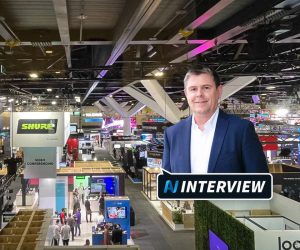

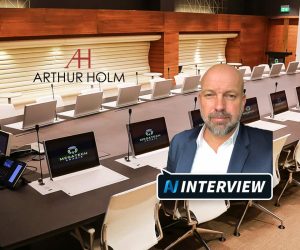
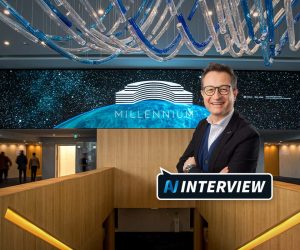




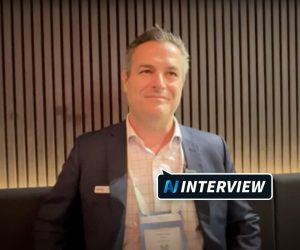
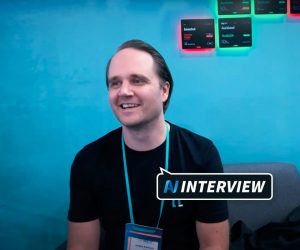
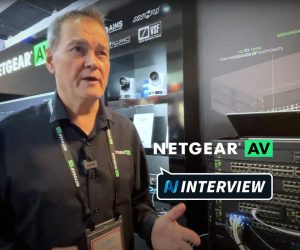
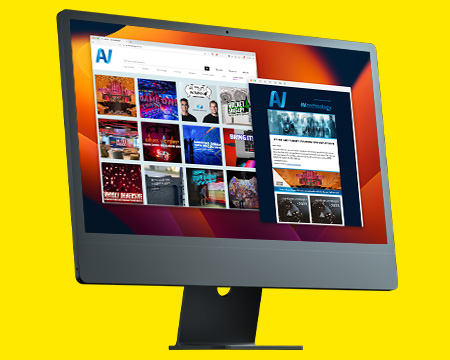
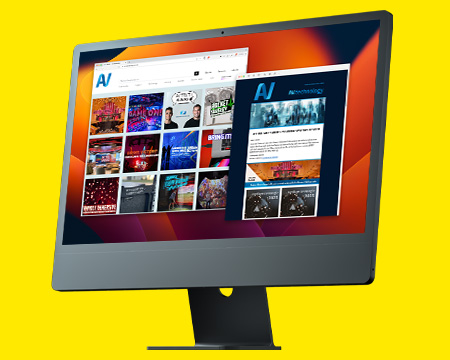
RESPONSES